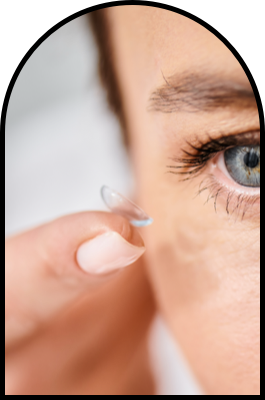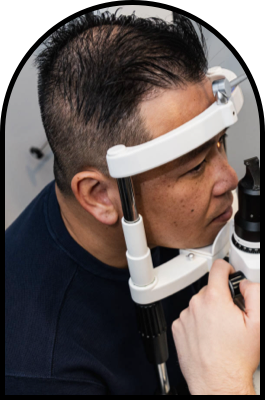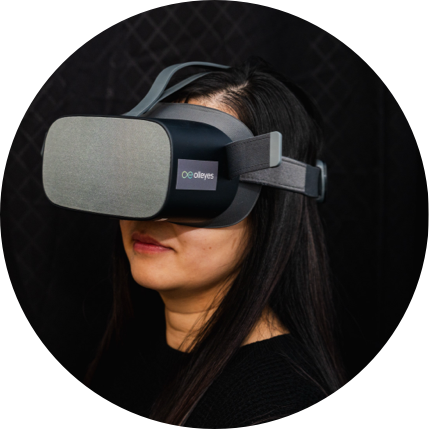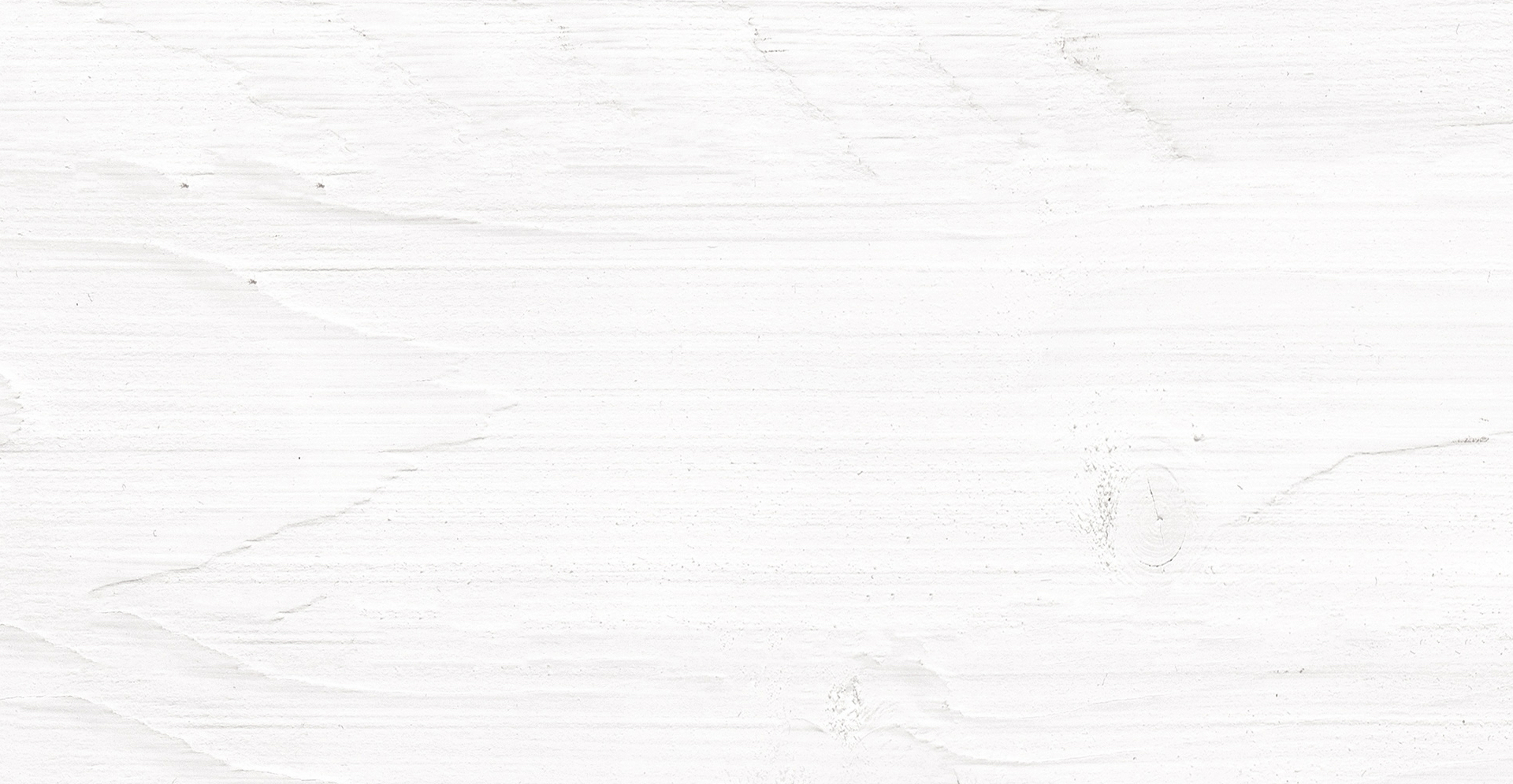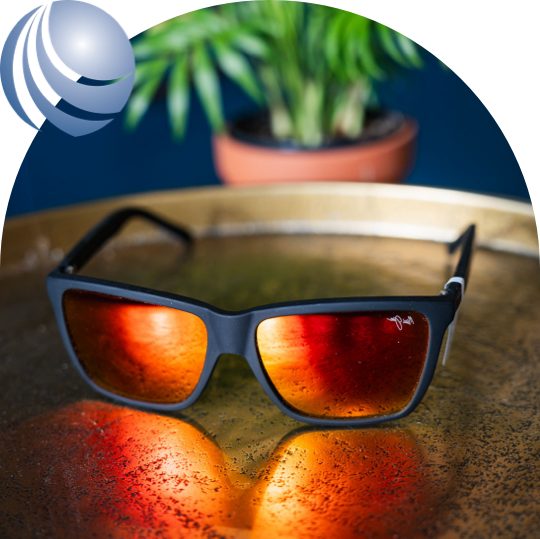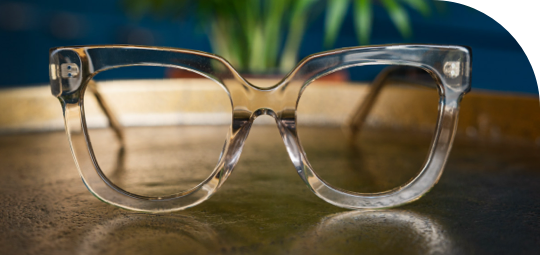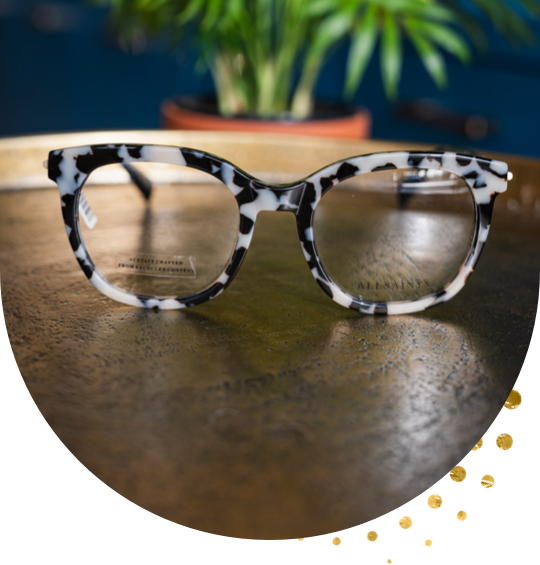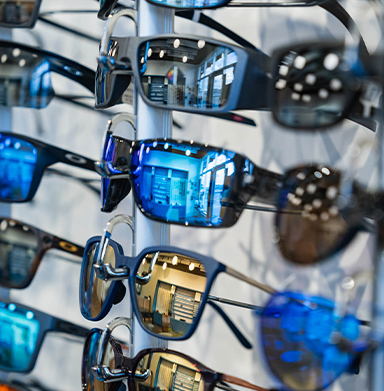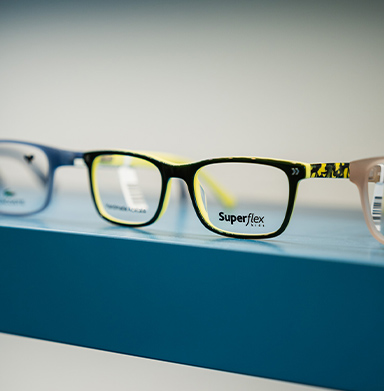Wearing sunglasses in summer makes sense. But as we transition into winter, the sun’s UV rays are still shining and can cause damage to your eyes.
Sunglasses are an accessory that can be worn year-round to protect your eyes from UV rays and glare. Comprehensive eye exams are also essential to help protect your eyes from vision-threatening conditions that can develop without noticeable symptoms.
There are many things that we change in preparation for winter. We trade our summer clothes for sweaters and our runners for boots, but what about eyewear?
Our advice is: don’t pack your sunglasses away! Maybe even get a winter pair. Here’s why sunglasses can protect your eyes as we head into the winter months.
Do I Need To Wear Sunglasses in the Winter?
The sun is indeed strongest in the summer, and in winter, it has a lower UV Index. However, the winter sun is more harmful to the eyes because it sits at a different angle and is lower in the sky.
Another reason the winter sun can be damaging is that snow reflects a high percentage of the sun’s light and can double your exposure to UV rays. The effects of ultraviolet exposure are easily preventable by wearing protective eyewear like sunglasses with 99-100% UV-A and UV-B protection.
Sunglasses Protect Your Eyes from Glare
Glare is when light reflects off something and enters your eye. Glare can affect everyone, whether you enjoy outdoor activities like skiing, running, hiking, or commuting daily in the car.
Water in the form of snow or ice creates a very reflective surface, increasing your exposure to UV radiation. It can be on the roads or the slopes, where UV rays are stronger because of the higher altitudes.
Winter sports, such as skiing and snowboarding, increase your risk of snow blindness. The extreme brightness from reflective glare can lead to temporary vision loss, discomfort, and sunburned eyes.
Next time you plan on hitting the slopes, avoid the distracting and dangerous effects of snow blindness by wearing sunglasses with an anti-reflective (AR) coating.
The benefits of polarized sunglasses for anyone who spends time outdoors and in high-glare situations include:
- Improved and clearer vision
- Increased contrast
- Minimal color distortion
- Reduced glare and reflection
- Reduced eyestrain
Sunglasses Protect Against Eye Diseases, Even in Winter
Healthy exposure to the sun has its benefits, such as helping you sleep at night or preventing nearsightedness in children. But overexposure can lead to certain eye diseases.
According to the World Health Organization, increased UV exposure can cause cataracts, skin cancers, immune system damage, and age-related macular degeneration. When you need help deciding what type of sunglasses to buy, visit your optometrist to find the right pair.

Sunglasses Protect Your Eyes from Elements & Drying Out
Sunglasses aren’t only for sun protection. Unpredictable winter weather can bring strong winds as well. Here are several ways sunglasses can help protect your eyes:
- They can help to insulate your eyes from the cold, dry air.
- They create a barrier to protect your eyes from foreign materials entering the eye and causing damage, such as ice particles, blowing snow, and debris or dust.
- They can reduce moisture evaporation since cold, dry weather can lead to dry eyes.
Cold weather isn’t great for your contact lenses, either. It can cause them to dry out more quickly. Contact lenses can correct your vision, but not all types protect your eyes from UV radiation. Speak to your eye doctor about getting non-prescription or wrap-around sunglasses to wear with contact lenses for more coverage.
Sunglasses Protect Your Eyes from Eyestrain & Headaches
When exposed to light your pupils react differently to protect the light-sensitive retina at the back of the eye. For extremely bright sunlight, your pupils get smaller or contract to decrease the amount of light that enters.
This makes the muscles work harder than usual to go smaller as quickly as possible. As the pupils adjust to protect the retina, you may notice your eyes squinting in response. Excessive squinting can cause eye muscle fatigue and eye strain, and possibly lead to headaches.
Protect Your Eyes This Winter
Taking care of your eye health is just as important in winter as in summer. During winter, there is increased light reflection off the snow and ice.
When you book an appointment with Chestermere Optometry, we can help you find the ideal pair of sunglasses to suit your lifestyle this winter. We stock a variety of sunglass styles and offer prescription sunglasses, too!




